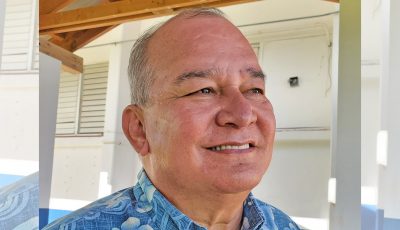Pilot CBHS/NCD survey to start this weekend
»Data collectors undergoing training
Data collection for the pilot, hybrid survey that would collect data on the prevalence of non-communicable diseases as well as information on adult substance abuse and mental health in the Commonwealth will finally begin this weekend after being postponed since last year.
Enumerators or data collectors for the Non-Communicable Diseases/CNMI Behavioral Health Survey who will be randomly sampling from house-to-house are currently undergoing training this week.
According to the Commonwealth Healthcare Corp.-Division of Public Health’s Non-Communicable Disease Bureau administrator Becky Robles, the survey is a huge collaboration of agencies.
Aside from the hospital, the CNMI Department of Commerce and the Northern Marianas College-Cooperative Research, Extension, and Education Service, the Pacific Island Health Officers Association, as well as the University of Hawaii are involved in the survey.
The survey, which includes a hybrid of indicators from the U.S Centers for Disease Control and Prevention and the World Health Organization, will be implemented for the first time in the Pacific Region.
Aside from answering questions about their health, the survey would also include physical biometric or anthropometric measurements such as blood samples to measure fat and sugar, blood pressure, height, and weight.
“The other Pacific Island jurisdictions are also waiting for us to do this because it is a pilot project. It’s a hybrid from CDC and WHO. They want to see how we do this survey and if it’s successful, then others in the Pacific Region will also want to adopt this survey,” Robles said.
The survey was initially set for August this year but was pushed back to September due to the need for more information and data. It was later on moved to this year because of Typhoon Soudelor.
Health officials said the survey is very important in giving light to the prevalence of NCD in the commonwealth.
“The reason that this survey is high priority is because we actually don’t have data. We don’t know what the prevalence of things like obesity, tobacco-use, diabetes, hypertension,” PIHOA-NCD regional epidemiologist for the USAPI’s Haley Cash said.
“We don’t have any adult baseline population-based data for non-communicable diseases and their risk factors,” Robles echoed.
Currently, the only data for CNMI are taken from those who visit the hospital in relation to NCDs. This, however, cannot represent the Commonwealth’s population.
The data will also help in future programs for public health as well as possible funding and grants.
“We will use the information that we collected to tailor programs,” Cash said.
“With this data, we will able to know what our problem areas are,” Robles said, “We are very grant driven, and as we know, the grants are very data-driven. Without the adequate data, it’s really hard to state your case. There’s a lot of data that we have but it’s the ‘pockets,’ not necessarily for the whole population.”




























